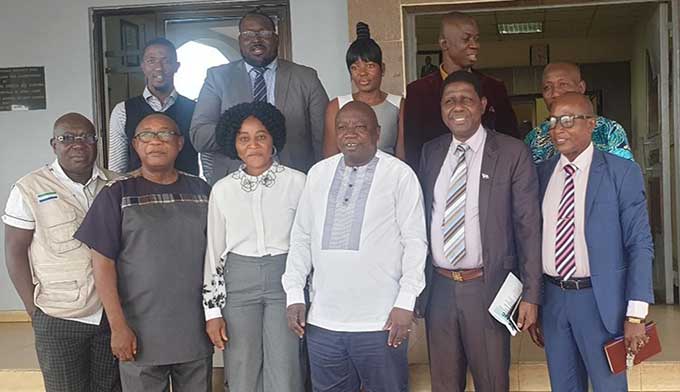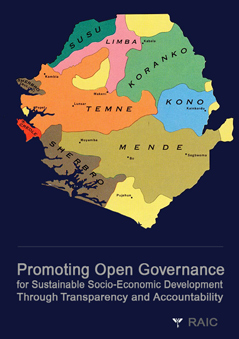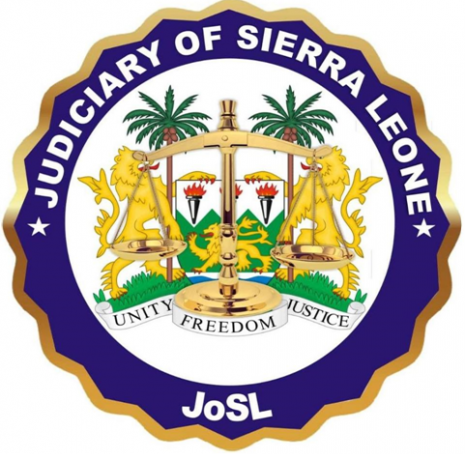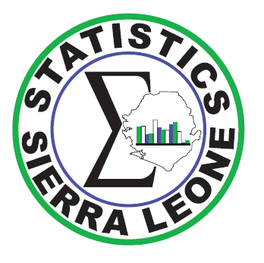A team from the Right to Access Information Commission (RAIC) has on Tuesday 15th August, 2023 held a productive consultative meeting with the Office of National Security (ONS) at their Tower Hill office on the rights and obligations of the ONS as a public authority under the Right to Access Information (RAI) Act of 2013.
Giving a background to the spirit of the meeting, the Chairman and Information Commissioner Dr Ibrahim Seaga Shaw said the RAIC had previously held popularsation and capacity building workshops and seminars with key stakeholders, including one recently with key elections management boides such as ONS, prior to the elections. Dr shaw noted that after the successful outcome of the June 24th elections, his Commission thought it fit to engage the ONS to take them through the RAI Act and give them the opporutnity to ask questions. Dr. Shaw informed all that the role of the RAIC is to serve as a regulator between the requesters and the public authorities ensuring the smooth facilitation of access to information in the country. He made reference to section 41 of the RAI Act which states that the Commission should report on the general compliance to freedom of information requests across MDAs which is why the RAIC issues out the Annual Compliance Report (ACR) and the Proactive Disclosure of Information(PDI) templates to MDAs every year for completion and return within the shortest possible time.
Legal Counsel of RAIC Alan Benjamin Esq. took the ONS officials through provisions in the RAI Act which he said are of great advantage to public authorities because at a point in time they may find themselves on either the demand, or the supply side, referencing sections 2 of the RAI Act of 2013 that says everyone has right to access to information is an indication that the Act caters for all. He emphasized Part 3 sections 12 to 26 which speak to exempt information that is, data that is not sharable citing information bordering around National Security, which is key to most of the data and operations of the ONS.
He also touched on the significance of Section 27, the proper management of records to access information without which access is almost impossible. He added that the appointment of Public Information Officers PIOs as provided in Section 28 of the RAI Act as principal contact person in the public authority for the facilitation of information access.
Alan Benjamin esq explained that the fifteen working days period for a request to be responded to, and the Forty-Eight-hour deadline where it involves life and liberty. Mr. Benjamin informed them of their obligation to transfer requests that have been wrongfully sent to them to the right MDA and inform the requester that his/her request has been transferred to another MDA that holds the information, adding that the Commission has the powers of the high court when adjudicating on matters and can fine individuals an amount not exceeding Ten Million Leones and One Hundred Million Leone for an institution.
National Security Coordinator in the Office of National Security Abdulai Caulker thanked the RAIC for the move but called for a proper harmonization of the Act that brings the ONS into existence and the RAI Act, because whilst the RAI act says information should be given out, the ONS act says that most of the information that the ONS holds, especially that which borders on national security etc should not be disclosed. He categorically assured the RAIC that besides the data that hinges on National Security and other exempt information they are willing to Comply.
Clarifying on the harmonization of the laws, the Executive Secretary of the RAIC, Hon. Musatapha Braima said there is no conlict between the two laws as section 17 speaks to National Security as an exemption and the Commission in all its engagements either through consultations, or sensitizations, has emphasized that. He underscored the fact that Access to information is an international benchmark that scored the highest in the last MCC report.
The Deputy National Security Coordinator, Dr Sannoh, for his part said that the ONS is always ready to provide access to information to the public as they often do to researchers, students, journalists, and other stakeholders as long as such information is not considered to be classified.
RAIC Chairman and Information Commissioner Dr Shaw said the classified information alluded to here is captured in the exempt provisions located in Part 3 of the Right to Access Information(RAIC) Act 2013 and said that there is therefore no disagrement between this Act and the ONS Act . Dr Shaw added that his Commission is the only institution in the country with the legal mandate to negotiate the balance between information that should be made available to the public on request, or proactively, and that which is considered to be exempt, and that it normally invokes the public interest test in doing this. He assured the ONS team that the RAIC is always available to provide guidance and clarification when needed to help them enjoy their rights and comply with their obligations as provided for in the RAI Act.
At the end of the engagement, the RAIC and ONS pledged to continue to partner for the development of of a transparent and secured Sierra Leone.
For media inquiries, contact:
David Patrick Kamara
Public Information Officer
Right to Access Information Commission (RAIC) National Secretariat
+23278407847



















